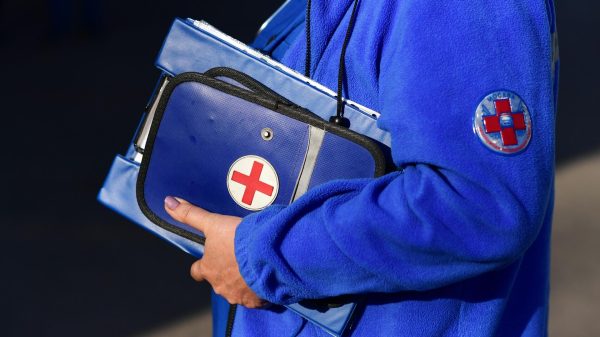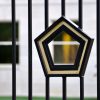
Benjamin Netanyahu waves to supporters at the party campaign headquarters in Jerusalem after the end of voting
Credit: EMMANUEL DUNAND /AFP
Benjamin Netanyahu has failed to emerge as the clear winner of Tuesday night’s elections, raising the prospect of him relying on hardline religious movements to secure a coalition government.
Initial results show that the prime minister’s Likud party has won the largest number of seats but is set to fall short of the 61 seats required for a majority in the fourth election in Israel in two years.
It means that Mr Netanyahu may need to court the hard-Right Religious Zionism group and possibly newcomer Islamist movement Ra’am — among others — in coalition talks that are expected to be a complex, lengthy process.
An alliance with Religious Zionism would be controversial as it includes the far-Right party Otzma Yehudit — "Jewish Power" in Hebrew — whose leader has expressed admiration for a mass-murderer who gunned down 29 Palestinians in the early 1990s.
Itamar Ben Gvir, whose faction is set to enter the Israeli parliament for the first time, is notorious for displaying a picture of the killer, Baruch Goldstein, in his living room. He has also called for the deportation of Arab-Israeli citizens who are "not loyal to Israel."

Itamar Ben Gvir (C), head of Israel's Jewish Power (Otzma Yehudit) party, walks with supporters at the Mahane Yehuda market in Jerusalem
Credit: AFP/AFP
Mr Ben Gvir agreed to take down the inflammatory photograph in January after criticism from Naftali Bennett, another prominent right-winger. Goldstein committed the murders in 1994 in Hebron and since then his grave has become a pilgrimage site of sorts for Jewish extremists.
Mr Ben Gvir has not yet confirmed if he would be willing to join forces with Mr Netanyahu. But the Religious Zionism movement his party is part of is projected to win around seven seats, which could prove decisive in building a coalition.
On the other end of of the spectrum, the Arab Islamist party Ra’am — otherwise known as the United Arab List — could also prove to be an important player, for either Mr Netanyahu or an alliance of anti-Netanyahu parties.
Initial results say Ra’am, which supports the two-state solution and the creation of a Palestinian state with East Jerusalem as its capital, is set to meet the threshold for entering the Israeli parliament.
"Whoever reaches out to us, we will work with them," leader Mansour Abbas told reporters yesterday.
However, he has insisted he “isn’t in the pocket” of Mr Netanyahu or his enemies.

Mansour Abbas, leader of the United Arab List, voting at a polling station in Maghar
Credit: Mahmoud Illean /AP
There are also reports of tensions in Likud, Mr Netanyahu’s party, as to whether it should join forces with Islamists to produce a government.
Even so, the results suggest that fervently religious Jewish and Muslim factions may end up playing a key role in talks on who will become Israel’s next prime minister.
Tuesday night’s election was widely regarded as a referendum on Mr Netanyahu, who is facing a corruption trial but has also won plaudits for his high-speed vaccinations campaign.
But, much like previous polls, the results are showing a mixed picture and may yet lead to a fifth election being called later this year.
Yesh Atid, the main rival to Mr Netanyahu’s Likud party, is set to win around 15 seats and maintains hopes of building a coalition against Israel’s longest serving prime minister.
This would likely require support from left-wing parties such as Labor, as well as the Blue and White faction led by Benny Gantz, which failed to unseat Mr Netanyahu last year.

A group of Likud party members celebrates following exit polls last night
Credit: Noam Moskowitz / Avalon
The results were also disappointing for right-wing rivals of Mr Netanyahu, who hoped to finally step out of his shadow.
Gideon Sa’ar, the leader of the new party New Hope, is only set to secure around five seats and has firmly ruled out a coalition with Mr Netanyahu.
Meanwhile Naftali Bennett, the leader of Yamina, is projected to win seven seats, a lower result than he hoped but one that may potentially allow him to prop up the Likud party.
This suggests that Mr Netanyahu, known to his supporters as “Bibi,” continues to be Israel’s most popular right-wing leader by a wide margin, despite the uncertainty of the results.




















































Свежие комментарии